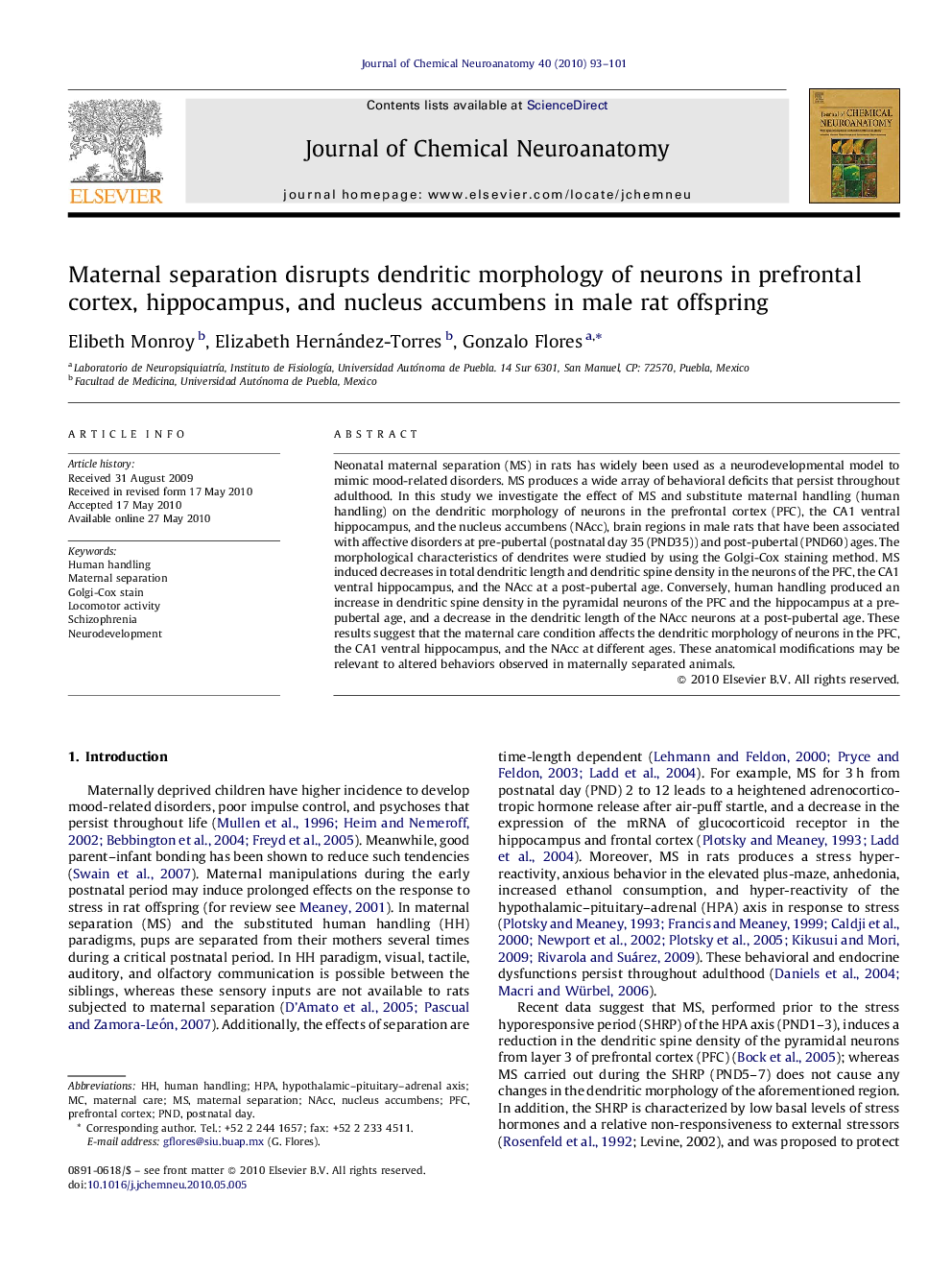| Article ID | Journal | Published Year | Pages | File Type |
|---|---|---|---|---|
| 1989119 | Journal of Chemical Neuroanatomy | 2010 | 9 Pages |
Neonatal maternal separation (MS) in rats has widely been used as a neurodevelopmental model to mimic mood-related disorders. MS produces a wide array of behavioral deficits that persist throughout adulthood. In this study we investigate the effect of MS and substitute maternal handling (human handling) on the dendritic morphology of neurons in the prefrontal cortex (PFC), the CA1 ventral hippocampus, and the nucleus accumbens (NAcc), brain regions in male rats that have been associated with affective disorders at pre-pubertal (postnatal day 35 (PND35)) and post-pubertal (PND60) ages. The morphological characteristics of dendrites were studied by using the Golgi-Cox staining method. MS induced decreases in total dendritic length and dendritic spine density in the neurons of the PFC, the CA1 ventral hippocampus, and the NAcc at a post-pubertal age. Conversely, human handling produced an increase in dendritic spine density in the pyramidal neurons of the PFC and the hippocampus at a pre-pubertal age, and a decrease in the dendritic length of the NAcc neurons at a post-pubertal age. These results suggest that the maternal care condition affects the dendritic morphology of neurons in the PFC, the CA1 ventral hippocampus, and the NAcc at different ages. These anatomical modifications may be relevant to altered behaviors observed in maternally separated animals.
